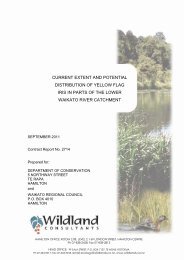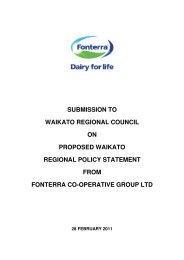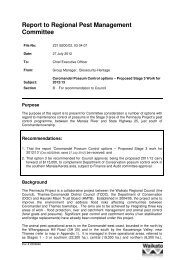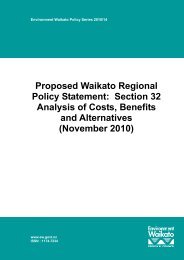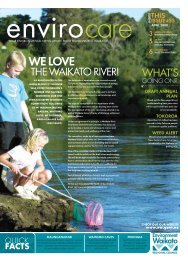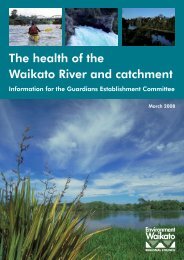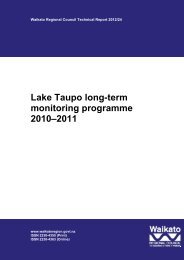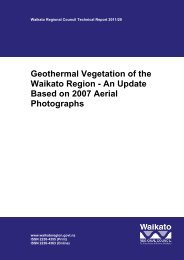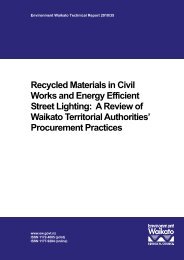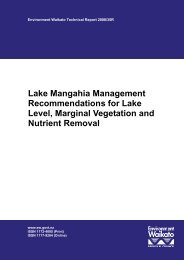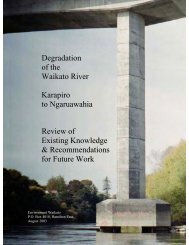Waikato regional economic profile - Waikato Regional Council
Waikato regional economic profile - Waikato Regional Council
Waikato regional economic profile - Waikato Regional Council
- No tags were found...
Create successful ePaper yourself
Turn your PDF publications into a flip-book with our unique Google optimized e-Paper software.
Information TechnologyInternational Tourism, Hospitality and EventsTradesEngineering, Science and Primary IndustriesCentre for Foundation Studies, andCentre for Languages.Study options include short courses, a Trades Academy, English Language andIntroduction to Study programmes, undergraduate and postgraduate programmes up toMasters level.As shown in figure 120, in 2010 there were 3,400 qualifications completed at Wintec, ofwhich 3000 were undertaken by domestic students. A third of completed qualificationswere level 5 or above, compared with 29 per cent for all New Zealand polytechnics.The most popular subject area was management and commerce (19 per cent) followedby creative arts, information technology and health.Figure 120: Wintec completed courses by area and level11.2.3 Waiariki Institute of TechnologyEstablished in 1978 as a centre for adult and trades education, there is an 8 hectarecampus in Rotorua, a Primary Industry Campus at Waipa and smaller <strong>regional</strong> centresat Taupō, Tokoroa and Whakatane.The Waiariki Institute of Technology Schools and Academies are:School of Business and TourismSchool of Computing, Technology and CommunicationsSchool of Forestry and Primary IndustriesSchool of Nursing and Health StudiesSchool of Trade TrainingTe Wananga a Ihenga Māori Development, Humanities and Research;Waiariki Academy of Singing and Music, andWaiariki Academy of Sport.Waiariki Institute of Technology employs over 550 people, with approximately 350academic and 200 support staff. Waiariki Institute of Technology offers nine NewZealand Qualifications Framework level 7 degrees, some with multiple majors. It alsooffers graduate diplomas. There were 2,000 qualifications completed in 2010, 1660 ofwhich were by domestic students. 34 per cent of completed qualifications were at level5 or above. The most popular subject areas were agriculture and environment (24 perDoc # 2069885 Page 129




